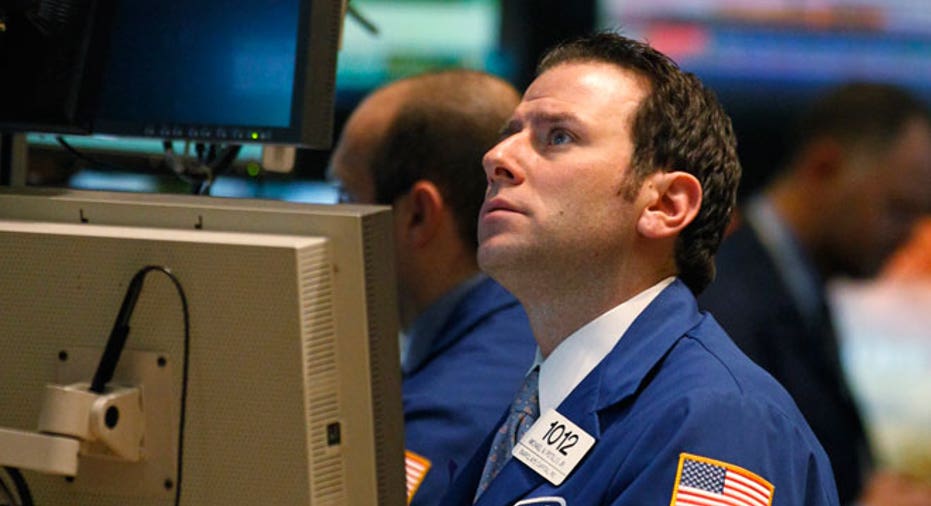Taxes a Cure-All for High Frequency Trading?

Fueled by momentum in Europe, some U.S. lawmakers are looking to introduce a tax on stock transactions in an effort to discourage computerized trading that tends to increase volatility in the markets.
It’s a move Democrats Tom Harkin and Peter DeFazio believe will raise $352 billion for the government over the next decade, while minimizing high frequency trading (HFT), often blamed for broader inefficiencies within market structure.
The bill's biggest adversaries, however, warn an umbrella tax could trickle down to retail investors and mutual funds while simultaneously discouraging investing. They argue for less broad measures to stem HFT, such as cancellation fees.
“I don’t think this is the solution to any high frequency problems. It would just hurt the market overall.,” said Dennis Dick, a prop trader at Bright Trading and market structure consultant.
A transaction tax has been floated in the U.S. for several years amid the skyrocketing growth of electronic trading but has failed to gain any significant traction. Lawmakers were revitalized in January when European Union finance ministers approved a transaction tax in Germany, France, Italy, Spain and seven other eurozone countries.
The EU law follows Britain's Stamp Duty Reserve Tax implemented in 1986, which assigns a tax to paperless transactions, and comes some 40 years after U.S. economist James Tobin first floated the idea. Last week, EU tax commissioner Algirdas Semeta encouraged U.S. supporters to keep up their efforts, claiming a global transaction tax will eventually be a reality.
Harkin and DeFazio at the end of January touted the EU's decision and said they planned to reintroduce their tax bill in “coming weeks.” Instituting a similar tax in Europe, they say, makes it more difficult for U.S. traders to jump overseas to avoid it.
“Our financial transaction tax should be a no-brainer,” DeFazio said. “In the coming months, our country will need to make hard decisions to get back on sound fiscal footing.”
Low-Tech Way to Solve a High-Tech Problem
A trade tax would target speculators who create volatility by “flipping stocks a thousand times a minute,” DeFazio said. Under his and Harkin's measure, a three-cent tax would be charged on every $100 financial transaction.
Its proponents say the tax assigns responsibility to an industry that was largely blamed for the 2008 financial crisis, punishing Wall Street in a way for their historical deeds.
“Something is needed to get down the number of computerized transactions that are taking place,” said Charles Geisst, a professor of finance at Manhattan College who has authored several books on Wall Street and financial history. “I think this is a good way to do it.”
He called algo trading “marginal at best” and said a transaction tax would throw a “monkey wrench” into today’s high-tech, high-speed market structure.
“No regulator can find the ability or money to monitor that kind of frenzied trading,” Geisst said, so a tax would provide regulators an opportunity to slow those volatile trades without having to monitor the market on a second-by-second basis.
"It's a clever low-tech way to solve a high-tech problem until someone comes up with something different,” Geisst said.
If the tax proves unsuccessful, the worst that happens is it generates some money for the government, he said.
'Zero to None' Chance it Passes
Traders, however, don’t share that same enthusiasm, arguing a tax would be a “big mistake,” leading to unintended consequences while not getting to the core issue.
In fact, they think there's very little chance it passes at all, likely unable to garner enough support on both sides of the aisle.
“There’s a zero to none chance” it passes, said Joe Saluzzi, co-founder and partner at Themis Trading.
Saluzzi and Bright Trading's Dick agree that high frequency trading has its flaws, but they believe a tax would just discourage investing in general. There are far better ways to tackle the issue, they say, including implementing an SEC-mandated cancellation fee.
“If you’re trying to attack high frequency trading -- a short-term casino mentality -- you don’t do it with a tax,” Saluzzi said.
Due to the sheer speed of computerized transactions, high-frequency traders are estimated to cancel 99% of their orders, clogging and bogging down the market with orders that are never filled.
Under this so-called usage fee, the Securities and Exchange Commission would essentially issue a mandate requiring that everyone pay a fee for canceling transactions. Saluzzi, who compared it to a smartphone data plan that becomes increasingly expensive the more gigabytes are used, said it would be a more direct hit on high-frequency trading.
The rule could be written in such a way that the money raised is funneled back into the financial industry -- rather than a miscellaneous tax pool -- to improve exchange technologies and fund the SEC. That would be “much more palatable with investors,” Saluzzi said.
Market Players Testing Solutions
Exchanges have experimented with similar methods of curtailing HFT in the past.
Deutsche Borse introduced a tariff last year that charges traders for high “order-to-trade” ratios and The London Stock Exchange has had a similar fee in place for years.
The Intercontinental Exchange (NYSE:ICE) in 2011 implemented a “high frequency trading policy” that it has since said is “highly effective” because it discourages inefficient and excessive messaging without compromising market liquidity.
In the first year the fee was implemented, ICE's weighted volume ratio, or the ratio of orders using the weighting scale to lots traded, declined by 63% in its futures markets.
ICE COO Chuck Vice at the time called policymakers's proposals against high frequency traders “drastic and untested,” saying the ICE is dedicated to finding sounder policies that won't overly penalize the sector or evaporate liquidity.



















